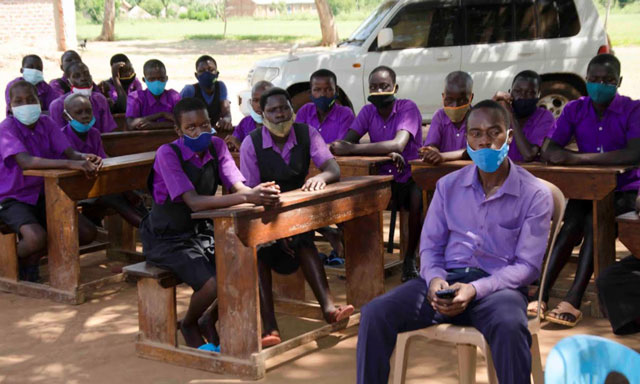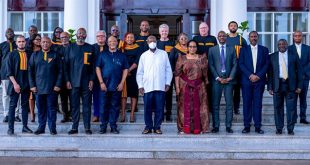
Planning authority warns 4.5 million learners might never return to school
Kampala, Uganda | THE INDEPENDENT | The National Planning Authority-NPA has projected that over 30 per cent out of the 15 million learners that were in schools before the COVID-19 pandemic hit Uganda are likely not to return to school. The percentage translates into 4.5 million learners across the different education levels.
According to the NPA report titled; towards the safe re-opening of the education sector in COVID-19 time; the trend can be attributed to poverty, teenage pregnancies, early marriages, and child labour among other factors. The report highlights that as the impacts of the recession triggered by COVID-19 hit families, many children may be forced out of school, into labour markets. Girls are likely to be much more affected than boys, with many forced into early marriage.
“We estimate a 19-20 per cent increase in the number of young girls becoming breadwinners for families through among others, sexual exploitation, child labour, and early marriages… Already, many girls are pregnant while many boys are engaged in economic activities which have increased the opportunity cost of returning to school,” the report reads in part.
The report also shows that learners, particularly in the basic education sub-sector (primary and secondary), have outgrown their grades making them prone to dropping out since evidence shows a higher likelihood for older learners to drop out of lower grades.
NPA further stresses that consequently about 64.6 per cent of the parents will struggle or even fail to pay tuition which will also increase non-enrollment, school dropouts, and dead years. The projection is tagged on reports showing that the COVID-19 coping measures have pushed poverty levels from 21 per cent to 24 per cent and are likely to push 40.6 per cent of non-poor households to become poor.
Besides parents being unable to pay school fees, many poor and vulnerable scholars rely on bursaries and scholarships to facilitate their education, yet several donors have pulled out from supporting them, citing economic constraints.
Francis Mbazira, the Executive Director of Kamwokya Christian Caring Community which supports vulnerable children from Kampala slums with bursaries and other education needs, says the world of scholarships depends on foreign funding from pensioners and retirees who have been hit hard by COVID-19 thus spelling doom for beneficiaries.
Mbazira says that their organization has already been affected with a number of their funders communicating that they will not be able to send support. He adds that even some funding that has been coming through foreign governments and organizations is no more as the said groups are shifting priorities to help COVID-19 stressed victims back home.
In the same development, as the reopening of schools nears, the report shows that some two million children both in primary and secondary schools remain uncertain on where they will receive education as the only institutions in their neighbourhood are at risk of closure due to financial distress and indebtedness.
It is projected that without significant support, about 3,507 (1,749 urban and 1,758 rural) poor private primary schools might not reopen for good. “Students attending these institutions are at risk of dropping out and or taking dead years, should these institutions close permanently. While the pre-school sub-sector was not assessed in the research, given that it is 100 per cent privately provided, the risk seems even higher than the rest of the sub-sectors.”
Apart from the fears of learners not returning to schools, there are vivid signals that many teachers, after exposure to alternative options of earning, may not return to schools while those who will return are likely to be more absent as they try to balance school and private business.
To mitigate further dropout, Issa Matovu, an education and public policy private consultant, suggests that the education ministry should implement a campaign to encourage economically struggling households who might fail to cope with private education tuition to enrol their children in public schools in the neighbourhood.
Matovu also observes a need for a multi-stakeholder approach involving parish chiefs, village churches, local cultural leaders, to implement a parish level outreach strategy for engaging families with learners that are at high risk of dropping out of school to ensure that such children are (re)enrolled in school.
The educationist further suggests that in a meantime the government should consider supporting or temporarily taking over management of private schools in areas where there are no public schools to ensure that learners can access free education.
To achieve this, Matovu says that the government might need to rescind the decision to suspend private secondary schools which were implementing the Universal Secondary Education-USE programme. To him, the programme can be used to help stressed private schools and also fix the school drop crisis at the same time.
******
URN
 The Independent Uganda: You get the Truth we Pay the Price
The Independent Uganda: You get the Truth we Pay the Price



 Who is Pope Leo XIV?
Who is Pope Leo XIV?
Good